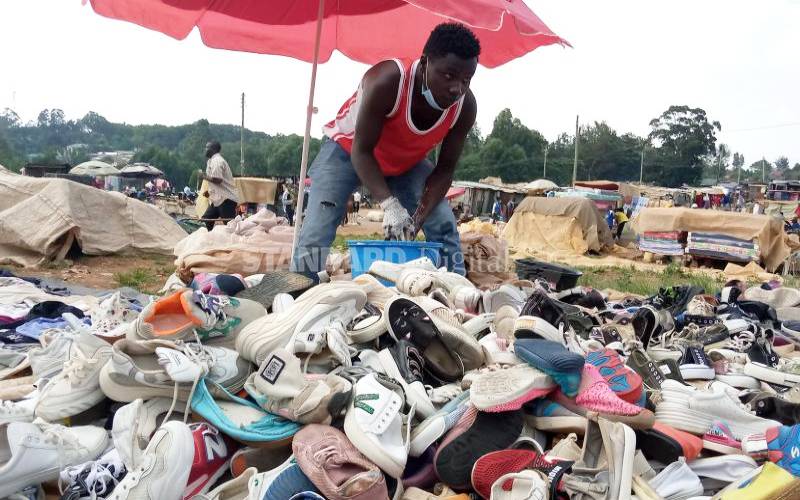×
The Standard e-Paper
Stay Informed, Even Offline

Paul Ngigi, a third-year student at Masinde Muliro University of Science and Technology washes second-hand shoes for sale in Kakamega town yesterday. [Mumo Munuve, Standard]
Jeremiah Njoroge is in his single-room house at Ebambwa in the outskirts of Kakamega town.